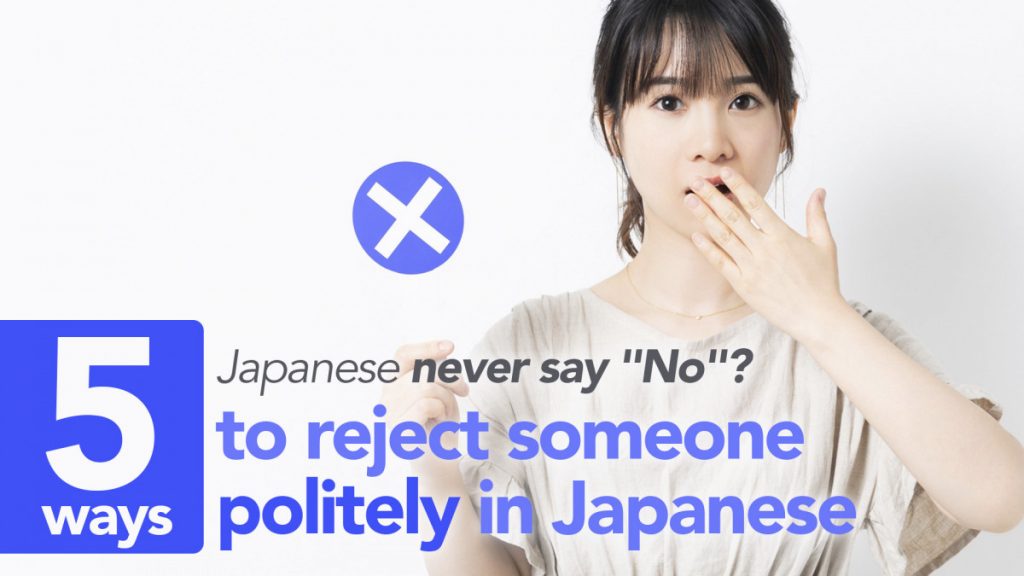Japanese is a traditional country and it values manners highly. The Japanese are always regarded as conservative, subtle, and indecisive. Hence, Japanese people tend to express refusals indirectly and ambiguously that they use a wide range of expressions to avoid using a strong “No” when rejecting someone or something. Do you know that there are many ways to say “No” in Japanese politely?
5 Ambiguous expressions as ‘NO’
Here are some examples to show how Japanese turn down an invitation indirectly.
1. ちょっと… (Chotto…)
Saying “ちょっと… ” is a polite way to reject someone’s offer. This word is to convey the meaning of difficulty to answer the request.
A: Hey! Are you coming to our party tomorrow? (明日のパティー、来る?)
B: I’m sorry, I something to do tomorrow so… (ごめんなさい、明日は用事があるので、ちょっと…)
2. ううん (Uun)
“ううん” is a very casual way of saying “no.” This expression can only be used between close friends and family members. Please be careful not to use this when having a conversation with your boss!
A: Do you have a piece of tissue paper? (ティッシュペーパーあるの?)
B: Nah. (ううん。)
3. 結構です (kekkou desu)
“結構です” means “no, thank you.” To say “結構です” is to say “no” generally but in an informal way but not so friendly.
A: Would you like one more drink? (もう一杯いかがですか?)
B: No, thanks. I’m fine. (いいえ、結構です。)
4. 大丈夫です (daijoubu desu)
“大丈夫です” implies the meaning of “I’m good.” You can use the phrase to reject an offer or an invitation from someone very politely.
A: Want to go out for a drink tonight? (今夜は一緒に飲みません?)
B: Thanks, I’m good. (私は大丈夫です。)
5. いいです (ii desu)
“いいです” is a tricky one. The phrase can be used both positive and negative ways, so you have to pay more attention when you hear “いいです” in a conversion to prevent misunderstanding.
A: Do you want some cheese cake? (チーズケーキを食べる?)
B: No thanks. I’m so full. (いいです。お腹いっぱいです。)
To decline an invitation while being polite, it is necessary to express your regret while showing your interest in the event. In the Japanese context, this is a way to develop a harmonious interpersonal relationship with others since you are showing some respect through communication!

